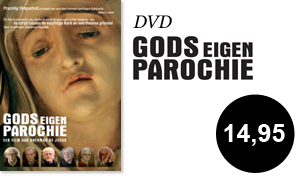
Director
Marco De Stefanis & Tonino Boniotti
Camera
Stefano Bertacchini
Production
Eline van Wees
Involved TV channel
MAX
Producer
Cécile van Eijk
Sherman De Jesus
Coproduction
MAX
Alexandra, Judith and Ketty Leschan, three Jewish sisters from Holland, enjoyed unprecedented popularity in the 1930s and 1940s in Fascist Italy as the Trio Lescano. Their catchy close-harmony swing was the European answer to the Andrew Sisters. The war however put an end to their career. In their documentary Tulip Time, Marco de Stefanis and Tonino Boniotti look at this almost forgotten piece of history based on eyewitnesses, photos, letters, films and above all plenty of music.
Virtually everyone in Italy, even today, knows songs like ”Tulli-Tulli-Tullipan” and ”Ciribiribin”. Hardly anyone remembers the original interpreters: the Trio Lescano, three Dutch sisters with Jewish roots. Alexandra (Sandra), Judith (Giuditta) and Ketty (Caterina) Leschan were the daughters of Alexander Leschan, at the time a famous circus artist, and the operetta singer Eva de Leeuwe. After roaming Europe, they arrived in the 1930s in Turin, which was the heart of the Italian radio world, where they were discovered by a local talent scout. He taught them to sing and launched their career. Almost right from the start, the trio was a success; their cheerful music based on American swing stood for freedom and elegance. In no time, they sold 100,000 records and even Mussolini – Il Duce – was among their fans. The success story ended in 1942, when the radio bosses sent the three sisters away because their mother was Jewish.
A year later they were even arrested on suspicion of espionage. Immediately after the war, their comeback was not very successful so they decided to try their luck elsewhere. In 1947, they left for Argentina, where they toured for several years. By then, Ketty had already left the trio to be replaced by Maria Bria. Several years later, the trio stopped playing altogether and Sandra returned to Italy and never saw her sisters again. In 1987, she died, lonely and almost forgotten. Marco de Stefanis and Tonino Boniotti happened upon this fascinating story by chance and decided to investigate how it came about that the three Dutch girls were so popular in Italy in the 1930s and 1940s, the years when the country was run by the authoritarian and dictatorial hand of Mussolini and his fascist party. They were also intrigued by the fact that they were almost entirely forgotten after 1947, as if they had been wiped from the collective memory by force.
This investigation resulted in the documentary Tulip Time, the story of their rise, incredible success and inevitable fall. Not only of the Trio Lescano itself, but also of radio culture in Turin, of a music style, of an epoch. It was above all Sandra, who was the oldest and felt most responsible for the trio, who personified this theme. She is introduced in the film as a voice-over. Her words, adapted by Arthur Japin and spoken by Kitty Courbois, provide an impressive picture – occasionally cheerful and occasionally painful – of life in Fascist Italy. The rhythm of the camera – many slow travelling shots- and for instance the images of derelict radio studios in Turin amplify the theme and the transitory nature of fame and success. The story is complemented by archive footage, photographs and above all by statements by contemporaries, especially those of Maria Bria, of music connoisseurs and historians.
2007
Digibeta
50 min.
Italian, Dutch. English subtitles
Tulip Time does us all a great favor, a fascinating story”
David Chapman, auteur van Bread and Ellington: A History of Italian Jazz






